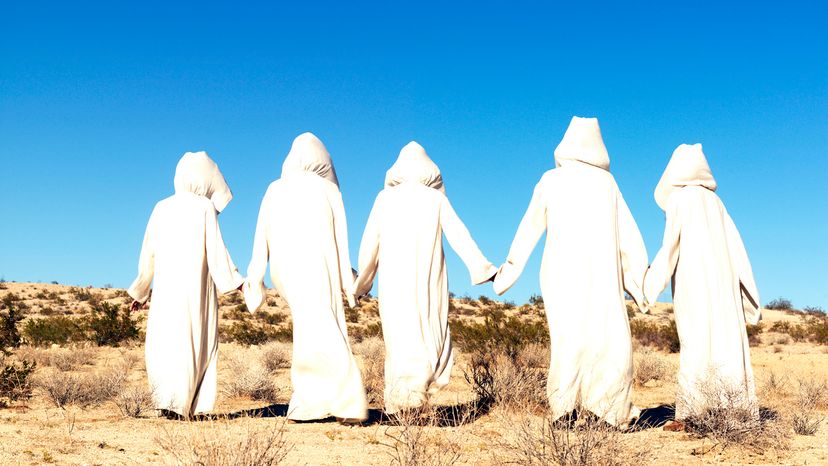
Cults are not unique to the United States, but there is a long history of cults in America. "Compared to other developed nations, the U.S. does have this consistent relationship with cults," Amanda Montell, author of "Cultish: The Language of Fanaticism," tells LitHub. "Whenever I talk to my friends who are not American and I tell them I’m writing this book about cults, their eyes do not light up the same way that Americans’ eyes do.
"And that’s because, across the world, levels of religiosity tend to be the lowest in countries with the highest standards of living, meaning strong education levels, long life expectancies, that sort of thing. But the U.S. is an exception in that it’s both highly developed and full of believers."
Advertisement
While there is interest in cults in the U.S., we do not have enough information on them — and that's by design. Psychologist Steve Eichel, president of the International Cultic Studies Association, estimates there are as many as 10,000 cults today, but, as he told "48 Hours", they "very deliberately try to stay under the radar. Unless they commit a crime, unless they do something that draws attention to them — negative attention and criticism to them — we generally don't know about them."
Some of the most famous cults have become news fodder and the focus of documentaries, giving us insight into how they operate, their belief systems and how they affect members. Read on to learn more about U.S.-based cults.
Advertisement